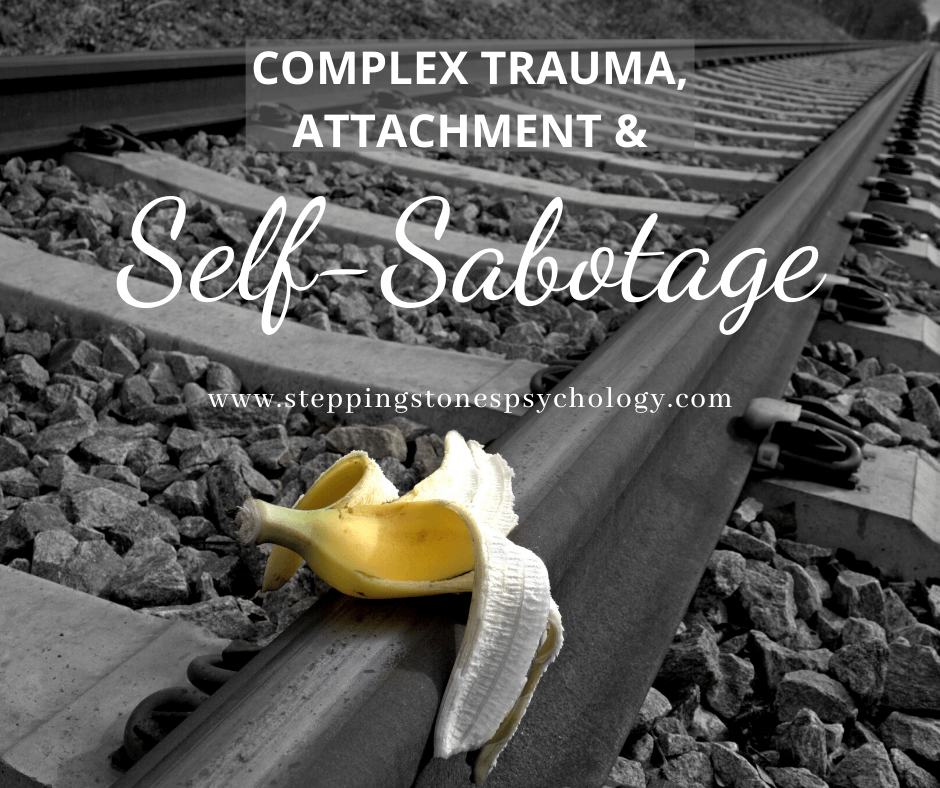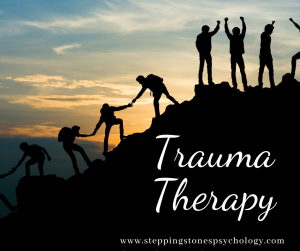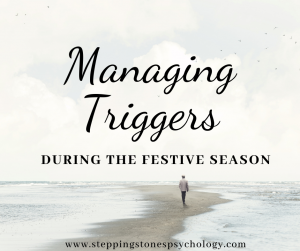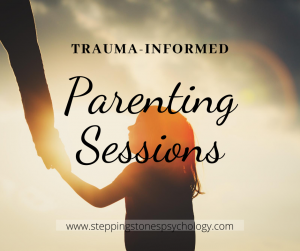Complex trauma or Complex PTSD can develop as a result of repeated or on-going traumatic events. Complex trauma can happen at any time in our life, however, for the purpose of this blog, the focus will be on attachment trauma related to childhood abuse or neglect.
Children who are traumatised are at risk of developing complications with building a secure attachment. We know that when caregivers are inconsistent or unavailable during childhood that this then disrupts the child’s development of a secure attachment. Instead, these children are more likely to develop an insecure attachment style, which usually carries on throughout their adult life.
Part of growing up in a traumatic environment, whether that was because of child abuse, or childhood emotional neglect, or having parents who were highly critical, will lead us into developing negative internal messages about ourselves. In complex trauma, the child carries a combination of trauma and attachment wounds resulting from their experiences from lacking nurture, safety, protection and firm, yet loving, structure and boundaries from their caregivers. For a child growing up, these difficult experiences will lead them to feel helpless, confused and overwhelmed. They become convinced that something is wrong with them and that they are permanently flawed. Growing up in an environment of fear, chaos, or rejection, and abandonment lead to them being certain that they are to blame for all of this. This will result in them carrying toxic shame and deep-seated beliefs that they are damaged, not worthy of being loved or of great things in life, or that they cannot trust anyone.
Often due to these deep-ingrained unconscious beliefs and the subsequent feelings of shame, unworthiness, or helplessness, the children then grow up to becoming adults who then engage in a re-enactment of these roles. For instance, they will develop friendships or intimate relationships with people who treat them in ways that are similar to how they were being treated growing up.
This is where self-sabotage comes in. For instance, you may crave for dependency, but reject relationships because of you avoiding intimacy. You may become possessive, yet emotionally detached. You may become aggressive or abusive towards your partner. You may keep choosing abusive or toxic relationships throughout your life. Although, all of these are different relationship patterns and insecure attachment styles, they stem from the same genuine terror of abandonment one feel deep down at the core. This may sometimes be conscious a conscious process, but usually unconscious.
So what can you do to help yourself? You can educate yourself and engage in inner journey activities that aid both general awareness and self-awareness about the connection between traumas, attachment and self-sabotage. It can be an overwhelming and emotionally challenging process to engage in. However, all this will be helpful to you in your healing journey. Learning more about trauma bonding may be beneficial too.
Often as a result of trauma and attachment history, you may continue to believe that you do not deserve your needs to be met. You may therefore settle for relationships and friendships with people that do not meet your needs or treat you well. This includes you settling for the very bare minimum they have to offer. Either that, or, you may do everything in your power to ruin or/and reject any relationship or friendship where people treat you with love and respect, and where they are conscious of meeting your needs. Practising self-compassion where you start to see and recognise your own needs and accepting that you can trust others to meet them, will all be part of your self-healing.
Another important aspect of healing is working on healthy boundary settings. Trauma survivors often have difficulties around boundaries due to the boundary violations they experienced growing up, such as intrusion violations and distance violations. However, boundaries can be a very powerful resource. It can be very challenging for trauma survivors to develop boundaries, but it is possible. Challenge yourself to take small, gradual baby steps at your own pace.
Doing these small things will all add to the bigger part of the picture. These are all small acts of self-care, and selfcare is connected to self-compassion. By offering self-care and self-compassion, you are moving closer towards self-love, meaning moving forward in your healing journey.
——————————
Should you be interested in attending a FREE webinar on this topic on Friday 24th July at 7pm, please contact Sharmi on contact@steppingstonespsychology.com
This webinar is part of a new service we will be offering in the future. It will consist of a membership for a Specialist trauma and C/PTSD Therapeutic Support Package. Should you be interested in joining this membership, please join our private Facebook group: www.facebook.com/groups/PTSDandTraumaSupportPackage/
Finally, if you are interested in supporting and partaking in a UK-based research for survivors of trauma, PTSD and CPTSD, please follow CPTSD & PTSD Research UK via this link: https://www.facebook.com/groups/2348717965433957/
This group involve research and resources, including some excellent trauma-informed blogs. CPTSD & PTSD Research UK is found by Nic Jonwik Strang, and you can read more about her story, vision and mission here: https://blog.ptsdresearchuk.co.uk/2020/06/about.html





Thanks so much
This is a great article, i cant wait to share with the group as you have made some great points i believe they will benefit from.
Once again thank you so much for your help